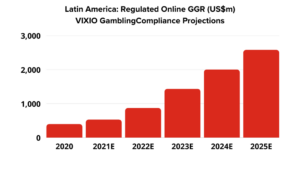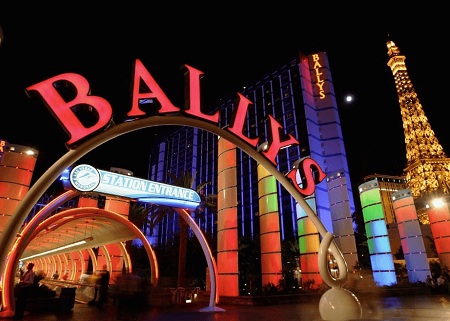The United States has long been associated with the glitz and glamour of casinos, often depicted in movies as a hub of excitement, entertainment, and potential riches. However, the casino industry in the US is undergoing significant changes, driven by technological advancements, regulatory shifts, changing consumer preferences, and external factors such as the global pandemic. In this blog post, we will delve into the current outlook for US casinos, exploring the challenges and opportunities that lie ahead.

Technological Innovations and Online Gambling
Technological innovations have played a pivotal role in transforming various industries in recent years, and the casino sector is no exception. The rise of online gambling platforms has altered the traditional brick-and-mortar casino landscape. With the convenience of gambling from home and the proliferation of mobile devices, online casinos have gained traction. This shift has created both opportunities and challenges for the industry.
Opportunity: Online gambling provides access to a broader audience, potentially attracting new players who prefer the convenience and anonymity of digital gaming.
Challenge: Traditional casinos must adapt to this changing environment by offering online options while also considering how to maintain the in-person experience that draws many customers.
Evolving Regulatory Environment
The regulatory landscape surrounding gambling varies widely across states in the US. In recent years, several states have moved to legalize sports betting, and some have even expanded into online casino gaming. The potential for increased tax revenue and job creation has partly driven this trend.
Opportunity: As more states explore gambling legalization, the casino industry can expand its reach and revenue streams.
Challenge: Navigating the complex patchwork of state regulations can be cumbersome for operators and consumers, and maintaining compliance remains a critical challenge.
Changing Consumer Preferences
Modern consumers, particularly millennials and Generation Z, have different entertainment preferences than previous generations. This shift impacts the traditional casino model, which often relied on slot machines and table games as the primary attractions.
Opportunity: Casinos can seize the opportunity to rebrand themselves as entertainment hubs, offering a broader range of experiences beyond gambling, such as live concerts, fine dining, and interactive events.
Challenge: Adapting to changing consumer preferences requires significant investment and strategic planning to create a holistic entertainment experience that resonates with new generations.
Recovery from the Pandemic
The global pandemic had a profound impact on industries worldwide, including casinos. Lockdowns, travel restrictions, and health concerns forced many casinos to close their doors temporarily or operate at reduced capacity. As the world gradually recovers, the casino industry faces a mixed outlook.
Opportunity: With the easing of restrictions, pent-up demand for leisure activities could surge casino visitation, particularly as people seek out in-person entertainment experiences.
Challenge: The pandemic has accelerated the adoption of online gambling, and some individuals may continue to prefer digital options even after the crisis abates. Casinos must find ways to cater to both in-person and online audiences effectively.
Conclusion
The outlook for casinos in the US is a mix of challenges and opportunities. Technological advancements, changing consumer preferences, evolving regulations, and the aftermath of the pandemic are reshaping the industry. To thrive in this new landscape, casinos must embrace innovation, diversify their offerings, and create experiences that resonate with a broader audience while staying true to their roots. As the industry continues to adapt, it will be fascinating to see how casinos evolve to cater to the dynamic preferences of today’s entertainment-seeking public.









